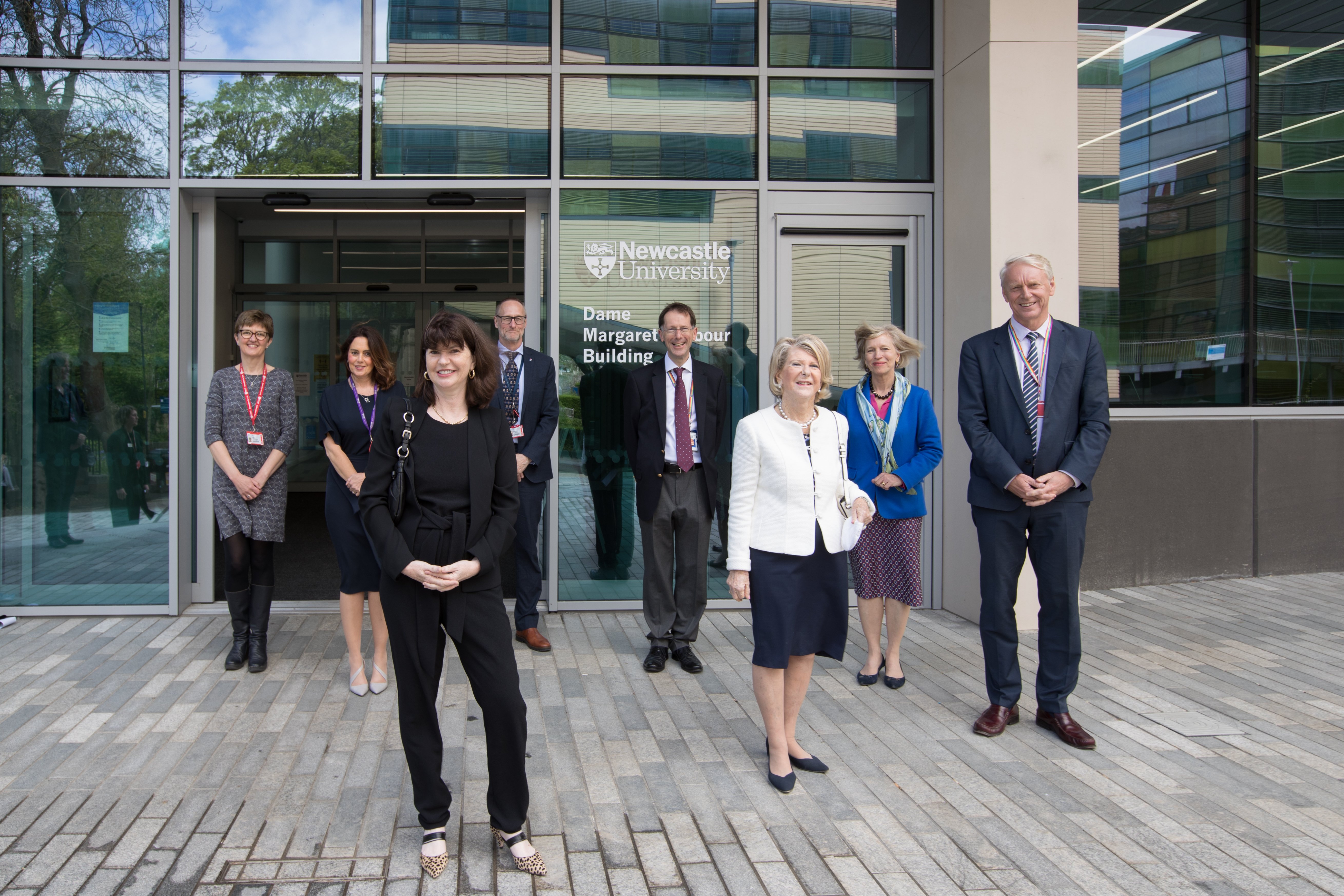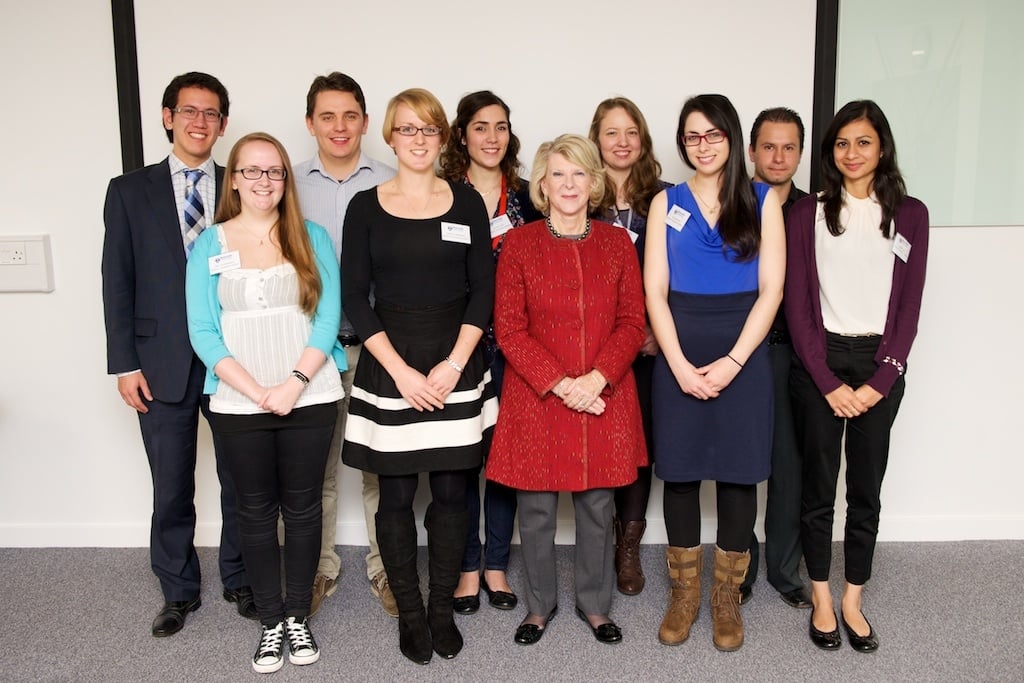
In 1988, Dame Margaret Barbour set up the Barbour Foundation (originally called The Barbour Trust) to support charities and good causes primarily in the North East of England and support research into the causes of chronic illness. To date, over £29million has been donated to our communities.

The Dame Margaret Barbour Building - in 2021, in recognition of the support The Barbour Foundation has given to Newcastle University since 2012, Dame Margaret Barbour officially opened a new education facility named after her.
The Barbour Foundation donated £1m to help young researchers at Newcastle University tackle debilitating syndromes and diseases such as ageing, human genetics and neurodegenerative disease.
The Barbour Foundation, Charity Number 328081
The Barbour Charitable Trust (now the Barbour Foundation) was founded in 1988. Since its inception more than £29m has been awarded to charities and good causes
The Trustees of the Foundation are Dame Margaret, Helen Barbour and Nichola Bellaby.
The address for correspondence is:
c/o Edith Howse, Executive Secretary
Barbour Foundation
Simonside
South Shields
Tyne and Wear
NE34 9PD
Telephone 0191 455 4444
Email - [email protected]
Guidelines
The Foundation has a diverse collection of objectives, including;
- The relief of persons in the North East of England who are in conditions of need, by reasons of their social and economic circumstances, hardship or distress.
- To assist organisations that provide services/projects for those with special needs.
- To help improve the employment prospects of young people and to alleviate their problems of homelessness in the North East of England.
- The promotion of research into the cause and treatment of chronic illnesses or diseases and the provision of medical relief.
- The protection and preservation for the benefit of the public in the North East of England such features of cities, towns, villages and the countryside that are of special environmental, historical or architectural interest.
- National and International crisis
Main Grants Meetings (from £2,000 per application) are held quarterly and Small Grants Meeting (up to £2,000 per application) are held every six weeks.
In addition to the Grant meetings, consideration is given to requests for prizes for charitable events. If successful a voucher will be issued. Applications for prizes should be made in writing to the correspondent. Applications to include a full postal address, date and full details of the event.
Geographical area
Parts of the North East of England i.e. Tyne & Wear, Northumberland, Durham and North & South Tyneside.
Application procedure
Failure to provide this requested information at the outset may result in refusal of the application.
Typewritten letter, limited to 2 sides of A4 paper and posted to the correspondent, including Charity number/status and full postal address, contact details i.e. e-mail and telephone number/s.
- Details of the request specific to the North East - i.e. project, core funding etc.
- Breakdown of costs
- 2 Full copies of the most recent accounts
- Which other funders have been approached?
- Donations raised to date?
Exclusions
- Requests from outside the geographical area
- Requests from educational establishments
- Capital grants for building projects
- Applications for/from individuals
- On-Line applications are not accepted **
- Partnerships/sponsorship
The Foundation always receives more applications than it has funds to support. Even if a project fits the policy priorities, it may not be possible to make a grant. Following a donation or refusal allow 12 months to elapse before re-applying.
Following a donation we ask for a cut-off receipt to be returned – failure to do so could jeopardise future requests.

